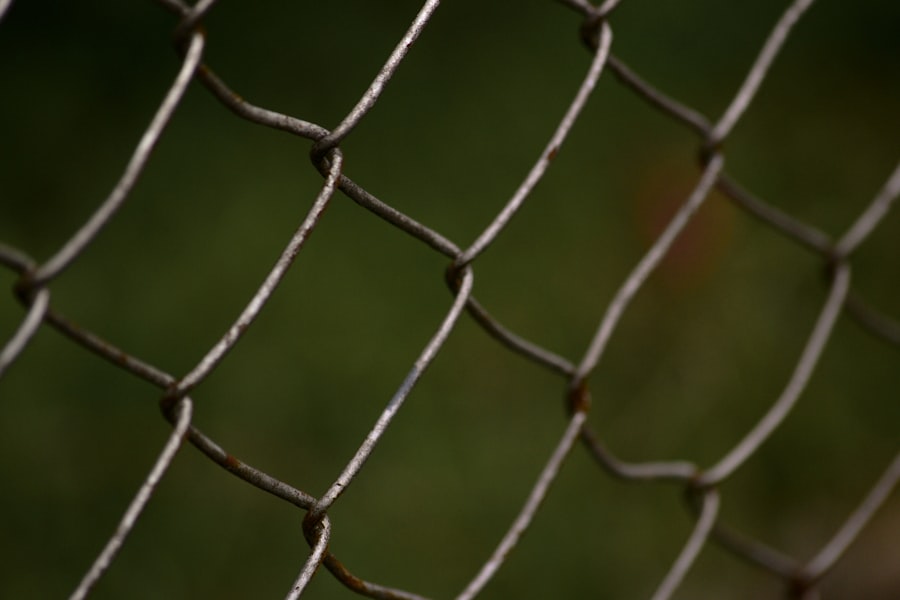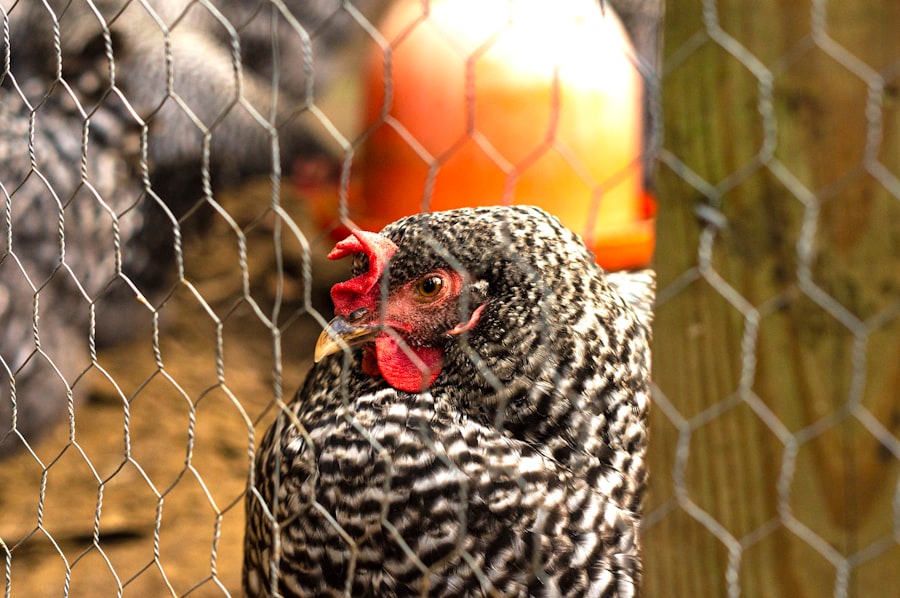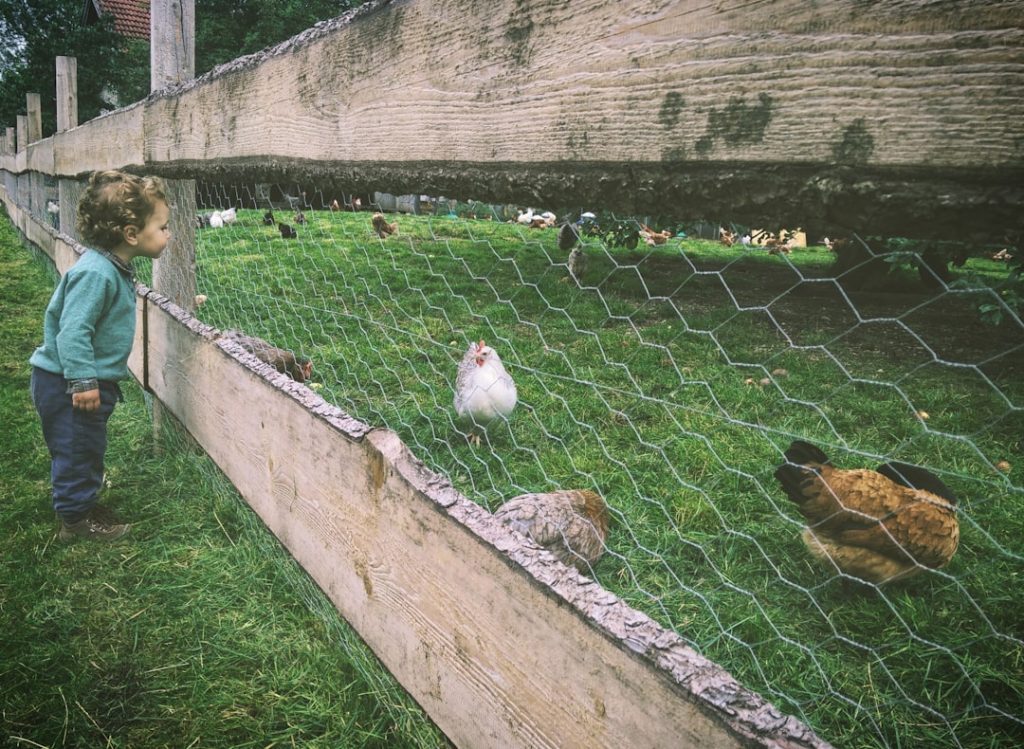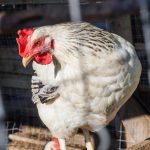Chickens exhibit natural curiosity and social behavior, with a strong instinct for foraging. They are easily startled by sudden movements or loud noises. Understanding these characteristics is essential when developing strategies to deter chickens from specific areas.
Their attraction to food-rich environments can inform methods to protect gardens and flower beds. Recognizing their skittish nature aids in selecting effective deterrents that minimize stress to the birds. The social structure within chicken flocks, known as the pecking order, plays a significant role in their behavior.
This hierarchy, where some individuals are more dominant than others, can influence how chickens respond to deterrents. Comprehending flock dynamics allows for the development of more effective strategies to manage unwanted chicken behavior across the entire group.
Table of Contents
- 1 Creating Physical Barriers
- 2 Using Natural Deterrents
- 3 Implementing Visual Deterrents
- 4 Providing Alternative Space for Chickens
- 5 Regular Maintenance and Monitoring
- 6 Seeking Professional Advice
- 7 FAQs
- 7.1 What are some effective ways to keep chickens out of vegetable planters?
- 7.2 Why is it important to keep chickens out of vegetable planters?
- 7.3 Are there any plants that can repel chickens from vegetable planters?
- 7.4 What are some common mistakes to avoid when trying to keep chickens out of vegetable planters?
- 7.5 How can I train my chickens to stay out of the vegetable planters?
Key Takeaways
- Chickens are naturally curious and will explore their surroundings, so understanding their behavior is crucial in deterring them from unwanted areas.
- Physical barriers such as fences and netting can effectively keep chickens out of specific areas and protect gardens or crops.
- Natural deterrents like predator urine or strong-smelling plants can help keep chickens away from certain areas without causing harm to them.
- Visual deterrents such as scarecrows or reflective objects can startle chickens and discourage them from entering restricted areas.
- Providing alternative space for chickens to roam and forage can help redirect their attention away from areas where they are not wanted.
- Regular maintenance and monitoring of deterrent methods is important to ensure their effectiveness in keeping chickens away from unwanted areas.
- Seeking professional advice from a veterinarian or animal behaviorist can provide additional insights and solutions for deterring chickens in specific situations.
Creating Physical Barriers
Fencing and Netting
One effective way to deter chickens from entering specific areas is by creating physical barriers. This can include installing fences, netting, or other structures that prevent chickens from accessing certain spaces. For example, if you want to protect your vegetable garden from chicken foraging, you can install a chicken wire fence around the perimeter to keep them out.
Protecting Specific Plants
Additionally, using hardware cloth or mesh netting over specific plants or flower beds can provide an extra layer of protection. This can be especially useful for plants that are particularly vulnerable to chicken damage.
Raised Garden Beds and Elevated Planters
Another physical barrier option is using raised garden beds or elevated planters. By raising the level of your garden beds, you can make it more difficult for chickens to access the plants and soil, reducing the likelihood of damage caused by their foraging behavior.
A Long-Term Solution
These physical barriers not only deter chickens from entering certain areas but also provide a long-term solution for protecting your plants and garden from potential damage.
Using Natural Deterrents

Incorporating natural deterrents can be an effective and environmentally friendly way to keep chickens away from specific areas. One common natural deterrent is the use of strong-smelling herbs and plants that chickens find unappealing. For example, planting rosemary, lavender, or mint around your garden or flower beds can help deter chickens due to their strong scents.
Additionally, using garlic or onion sprays as a natural repellent can discourage chickens from foraging in certain areas. Another natural deterrent is the use of predator decoys or predator urine. Placing decoys of natural predators such as owls or hawks in the garden can create a sense of danger for chickens, deterring them from entering the area.
Similarly, using predator urine, such as that of foxes or coyotes, can create a natural fear response in chickens, causing them to avoid specific locations.
Implementing Visual Deterrents
Visual deterrents can be an effective way to discourage chickens from entering certain areas by creating a sense of danger or discomfort. One common visual deterrent is the use of reflective objects such as old CDs or aluminum foil strips. Hanging these items around the garden or flower beds can create flashes of light and movement that startle and deter chickens from approaching.
Another visual deterrent is the use of scarecrows or motion-activated devices. Scarecrows can be placed strategically in the garden to create a visual barrier that deters chickens from entering. Motion-activated devices, such as sprinklers or noise makers, can startle chickens when they approach, teaching them to avoid specific areas over time.
Providing Alternative Space for Chickens
One way to deter chickens from unwanted areas is by providing them with alternative spaces and activities that fulfill their natural instincts. For example, creating a designated foraging area with loose soil and scattered grains can redirect their attention away from your garden or flower beds. Additionally, providing enrichment activities such as hanging treats or toys can keep chickens engaged and occupied in their designated space.
Another option is to create a separate grazing area with grass or vegetation specifically for the chickens to peck and forage. By providing an alternative space that meets their natural behavioral needs, you can reduce their interest in venturing into areas where they are not welcome.
Regular Maintenance and Monitoring

Inspecting Barriers and Deterrents
Regularly inspecting fences, netting, or other physical barriers for any damage or wear can ensure that they remain effective in keeping chickens out of specific areas. Additionally, monitoring the effectiveness of natural and visual deterrents allows you to make adjustments as needed to maintain their efficacy.
Managing Food Sources and Attractants
Staying proactive in managing food sources and potential attractants for chickens can help prevent unwanted behavior. This includes promptly cleaning up spilled birdseed or pet food, securing compost bins, and covering garbage cans to minimize opportunities for chickens to forage in these areas.
Proactive Property Management
By combining these efforts, you can maintain a chicken-free property and avoid potential damage to your land and belongings.
Seeking Professional Advice
If you are facing persistent challenges with deterring chickens from specific areas on your property, seeking professional advice can provide valuable insights and solutions. Consulting with a local poultry expert or animal behavior specialist can help you better understand the underlying reasons for the chickens’ behavior and develop effective strategies for deterrence. Additionally, reaching out to experienced farmers or gardeners in your community can provide practical tips and advice based on their own successful experiences with deterring chickens.
By tapping into the knowledge and expertise of professionals and experienced individuals, you can gain valuable guidance in addressing your specific chicken deterrence needs. In conclusion, understanding the behavior of chickens is essential for implementing effective deterrent strategies. By creating physical barriers, using natural and visual deterrents, providing alternative spaces for chickens, and maintaining regular monitoring and maintenance, you can successfully deter chickens from unwanted areas on your property.
Seeking professional advice when needed can further enhance your efforts in managing chicken behavior and protecting your property from potential damage.
If you’re looking for more tips on keeping chickens, you might be interested in an article on converting a shed into a chicken coop. This article from Poultry Wizard provides valuable information on how to repurpose a shed to create a comfortable and functional living space for your feathered friends.
FAQs
What are some effective ways to keep chickens out of vegetable planters?
Some effective ways to keep chickens out of vegetable planters include using physical barriers such as chicken wire or fencing, using natural deterrents like citrus peels or cayenne pepper, and providing alternative areas for the chickens to forage.
Why is it important to keep chickens out of vegetable planters?
It is important to keep chickens out of vegetable planters because they can cause damage to the plants, disrupt the soil, and potentially spread diseases or parasites to the vegetables.
Are there any plants that can repel chickens from vegetable planters?
Yes, some plants such as marigolds, lavender, and rosemary are known to repel chickens and can be planted around vegetable planters to help keep them away.
What are some common mistakes to avoid when trying to keep chickens out of vegetable planters?
Common mistakes to avoid when trying to keep chickens out of vegetable planters include using toxic substances that could harm the chickens or the vegetables, not providing enough alternative foraging areas for the chickens, and using ineffective or flimsy barriers.
How can I train my chickens to stay out of the vegetable planters?
You can train your chickens to stay out of the vegetable planters by consistently redirecting them to alternative foraging areas, using positive reinforcement such as treats when they stay out of the planters, and providing plenty of space and enrichment in their coop or run.
Meet Walter, the feathered-friend fanatic of Florida! Nestled in the sunshine state, Walter struts through life with his feathered companions, clucking his way to happiness. With a coop that’s fancier than a five-star hotel, he’s the Don Juan of the chicken world. When he’s not teaching his hens to do the cha-cha, you’ll find him in a heated debate with his prized rooster, Sir Clucks-a-Lot. Walter’s poultry passion is no yolk; he’s the sunny-side-up guy you never knew you needed in your flock of friends!







